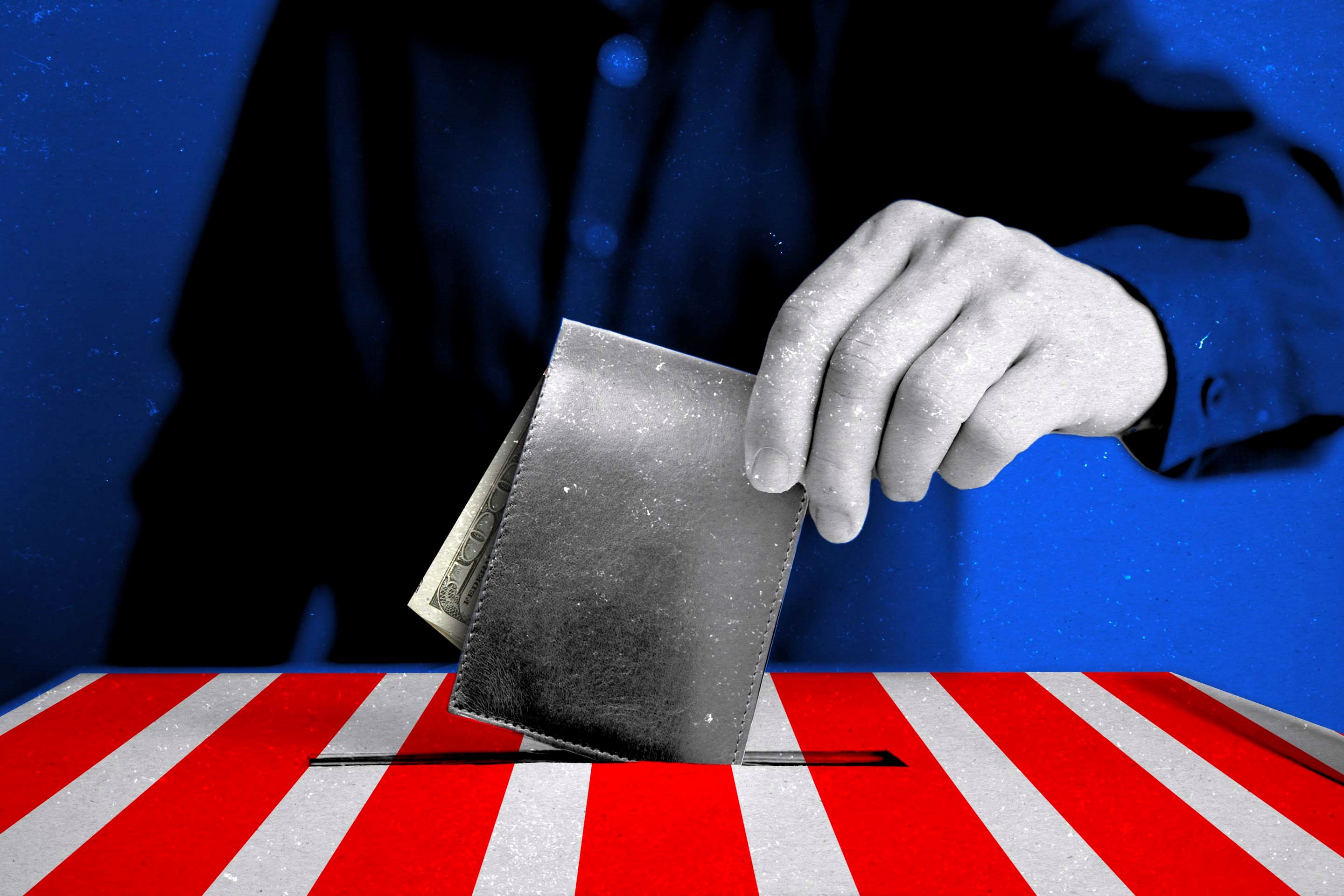Midterm elections and the US economy
The US economy is experiencing turmoil as a result of the midterm elections on Tuesday. Gas prices are volatile and inflation has been running at four-decade highs for months.
-

Midterm elections and the US economy. Source: Money; Getty Images.
Tuesday’s midterm elections come in light of economic vulnerability for the United States. The majority of recession projections now focus on "when" rather than "if," and inflation is still persistently high. American citizens are suffering from rising interest rates and a geopolitically tense winter.
The outcome of Tuesday's election will decide the composition of a Congress that has the power to pass laws that have the ability to profoundly alter the fiscal landscape.
Policy issues investors will pay particular attention to tax changes, debt limit, social security, spending and the Federal Reserve.
Tax changes
Last week, President Joe Biden said that he would levy a windfall tax on Big Oil firms after they posted record profits due to high gas prices. Republicans are generally opposed to raising taxes on the wealthy and are less likely to support a windfall tax on oil industry profits, according to my colleague Paul R. La Monica.
“What do midterms mean for the markets? If Republicans get the House, tax hikes are dead in the water,” said David Wagner, a portfolio manager with Aptus Capital Advisors.
If Republicans do take control of Congress, it would be difficult to accomplish any significant tax cuts without support from Democrats or Biden, so there might just be grandstanding without much movement.
Debt limit
The federal debt ceiling was last raised in December 2021, and the Treasury is expected to raise it again sometime next year. That means it will have to be raised again in order for America to borrow the money it needs to run its government and ensure the smooth operation of the market for US Treasuries, which totals approximately $24 trillion.
A fight seems to be brewing between Democrats and Republicans. House Republicans indicate that they may ask for steep spending cuts in exchange for boosting the ceiling.
If the government ends up divided and brinkmanship continues, there could be bad news for markets. The last time such gridlock occurred, under the Obama administration in 2011, the United States lost its perfect AAA credit rating from Standard & Poor and stocks dropped more than 5%.
Spending
Democrats have made it clear that they want to concentrate on the aspects of Biden's economic strategy from 2021 that have not yet become law, such increasing health insurance and child care tax credits.
In the event of recession, Goldman Sachs economists note that a Democratic victory could likely increase the federal fiscal response, while Republicans would be more likely to avoid costly relief packages.
Social Security
Popular programs like Social Security and Medicare face solvency issues long-term and the topic has become a hot-button issue on both sides of the aisle. The topic is so closely watched that even debating changes could impact consumer confidence, say analysts.
Democratic Senator Joe Manchin said last week that spending changes must be made to shore up Social Security and other programs which he said were “going bankrupt.” He said at a Fortune CEO conference that he was in favor of bipartisan legislation within the next two years to confront entitlement programs that are facing “tremendous problems.” Republican Senator Rick Scott has proposed subjecting almost all federal spending programs to a renewal vote every five years. Analysts say that could make Social Security and Medicare more vulnerable to cuts.
The Federal Reserve
In an effort to combat inflation, the Federal Reserve has started raising interest rates at a faster rate than before. Elizabeth Warren, Sherrod Brown, John Hickenlooper, and other Democratic senators have urged Fed Chairman Jerome Powell to decrease the rate of hikes.
Republicans are now getting involved. Senator Pat Toomey, the top Republican on the Banking Committee, urged Powell to resist buying government debt last week, if market conditions remain subdued.
Reports predict more scrutiny from both parties after the elections.
Biden’s stock market record is the second worst in 4 decades
The stock market spiked under President Biden, but with the midterm elections, markets are declining, according to a report by Matt Egan.
The S&P 500 has fallen by 1.2% since Biden took office in January 2021, which marks the second-worst records during a president’s first 656 calendar days in office since former President Jimmy Carter, according to CFRA Research.

 4 Min Read
4 Min Read








